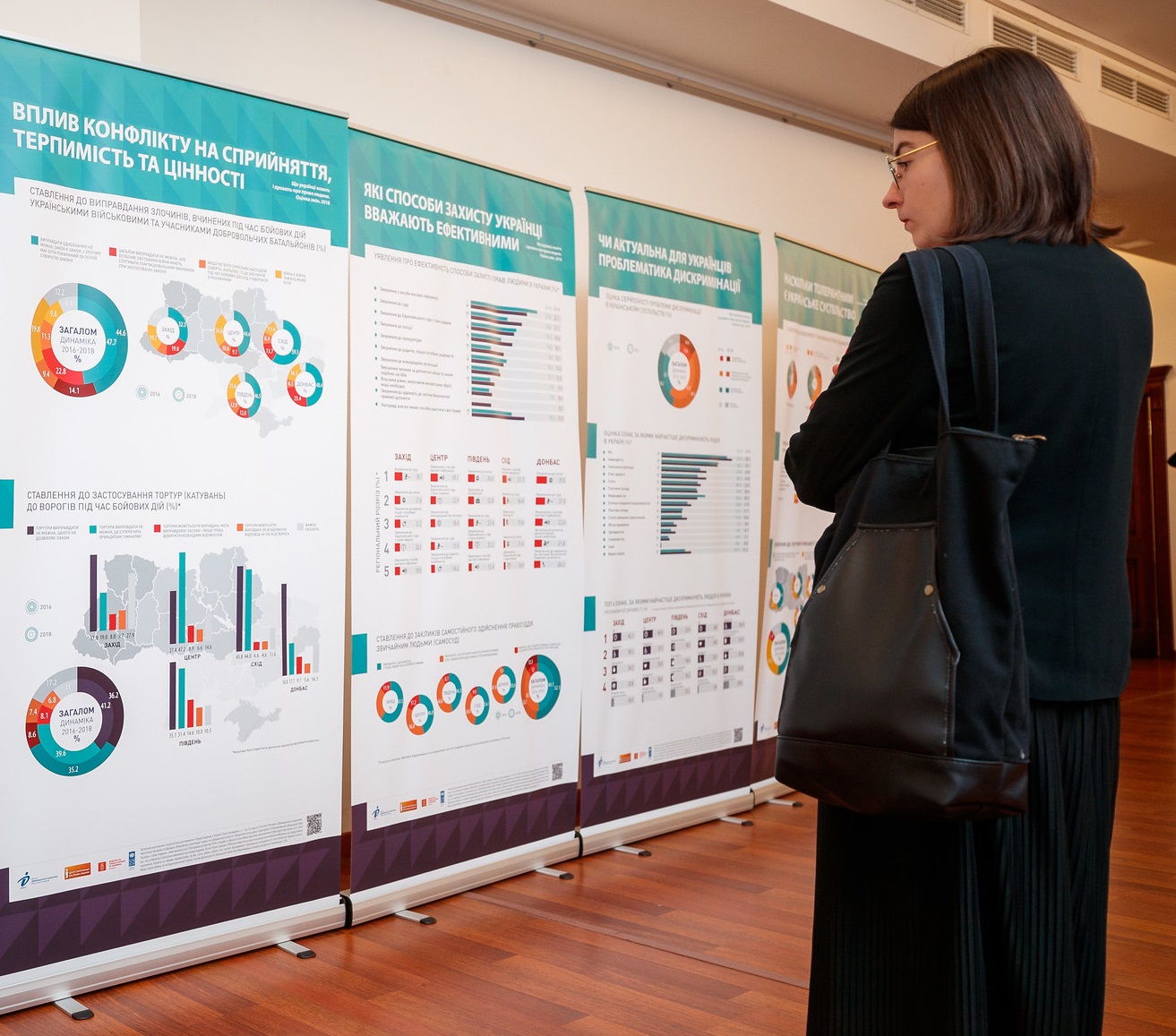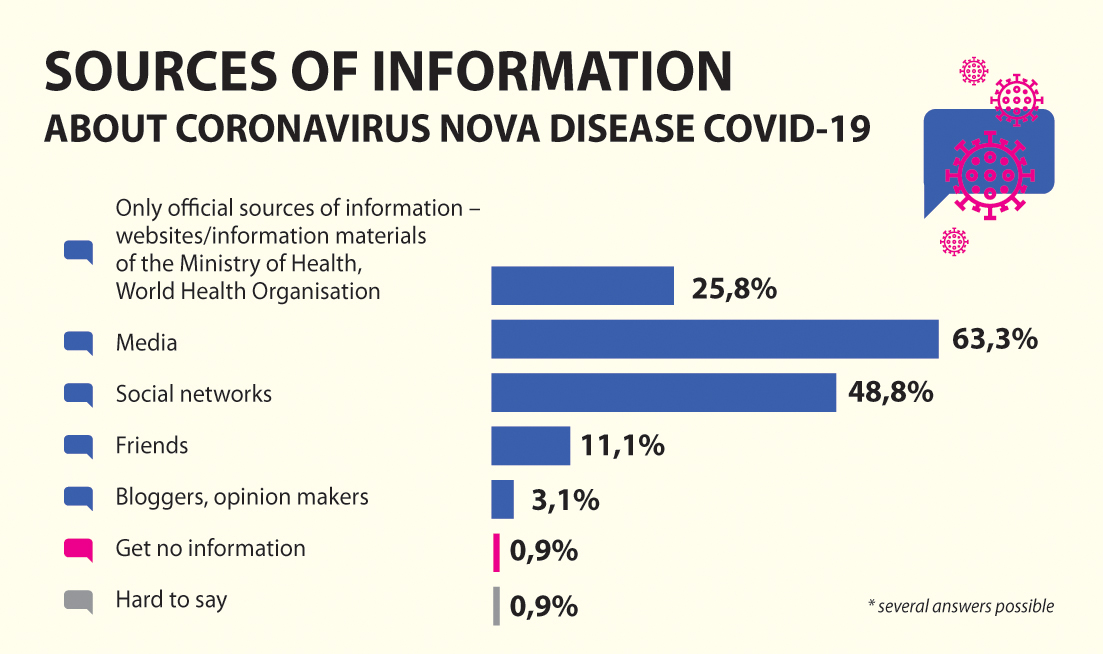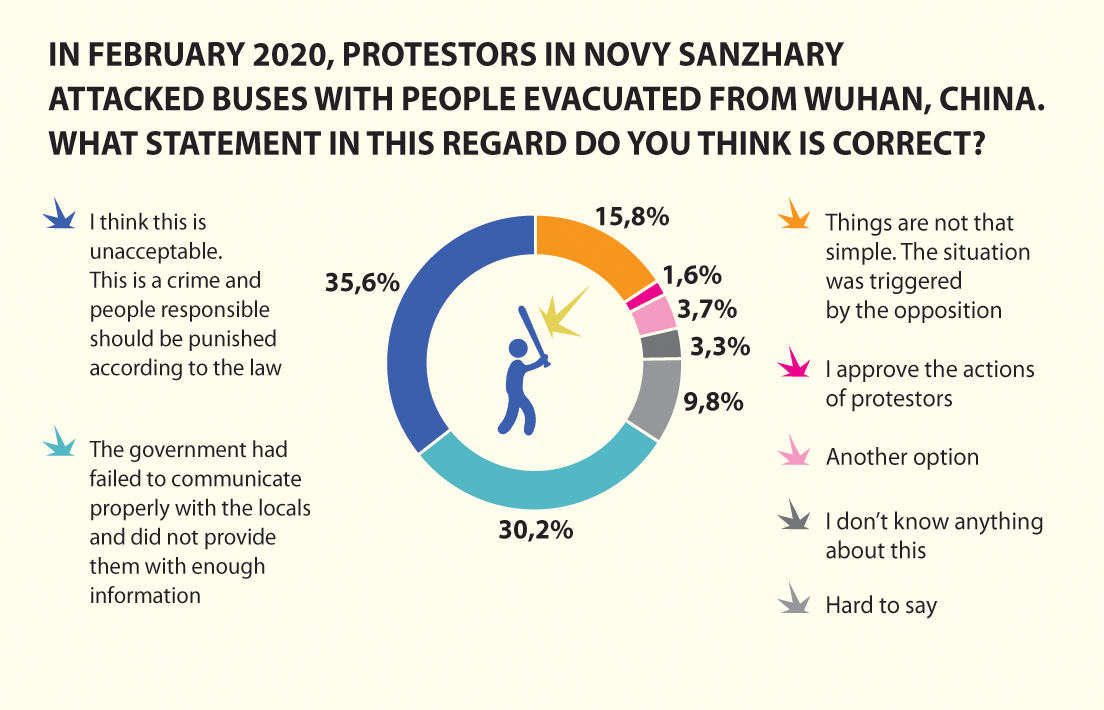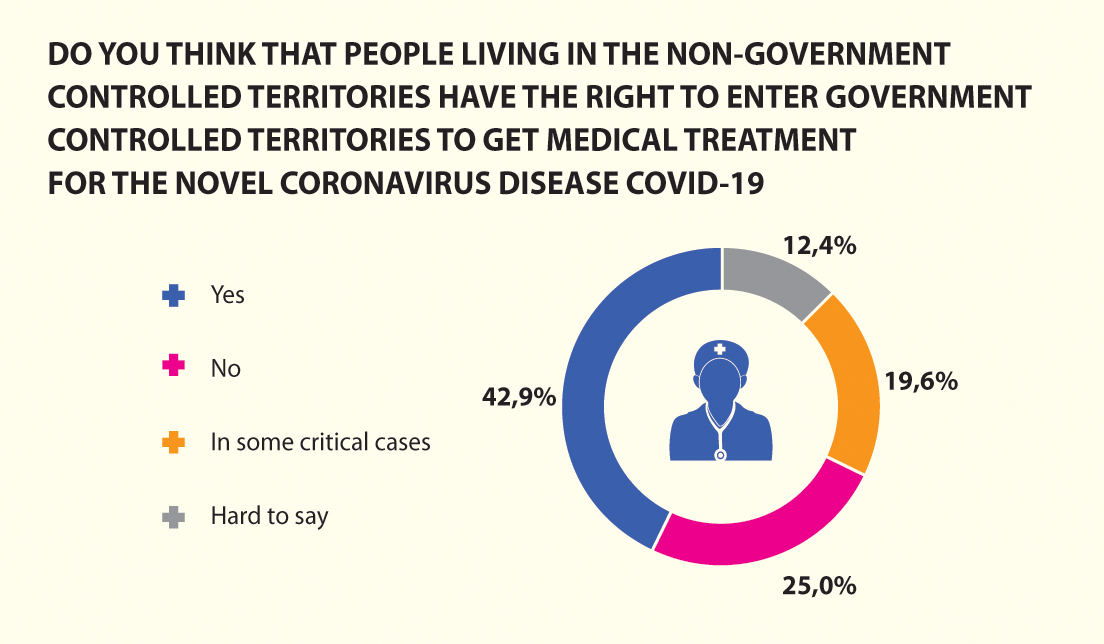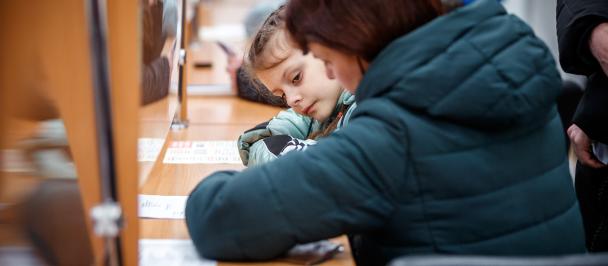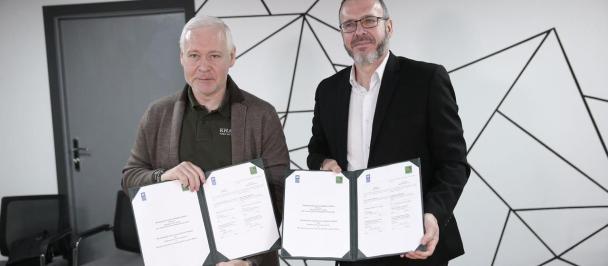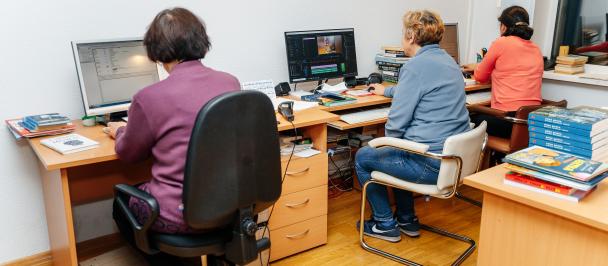Photo credit: Andriy Kryepkykh/ UNDP Ukraine
Most Ukrainians get information about the disease COVID-19 from the media. More than half of those polled think that people from Non-Government Controlled Territories have the right to come to Government Controlled Territories to seek medical treatment for the novel coronavirus disease COVID-19.
These are the results of a sociological survey about Ukrainians’ attitude to the new challenges that have emerged with the pandemic of the novel coronavirus disease COVID-19. The survey was conducted on 9-24 April, by the Kyiv International Institute of Sociology at the request of the United Nations Development Programme in Ukraine.
“The world is facing an unprecedented threat from the COVID-19 pandemic. This is the most challenging crisis since the Second World War. It is a global health, social and economic crisis," said Dafina Gercheva, UNDP’s Resident Representative in Ukraine.
"During quarantine and lockdown, the most vulnerable groups are affected the hardest by the crisis. UNDP is working to ensure that no one is left behind."
The survey found that most Ukrainians get information about the novel coronavirus disease COVID-19 from the media (63 percent), and from social media (49 percent). Twenty-five percent of respondents said that they get information from official sources such as the Ministry of Health or World Health Organisation websites, and from their information materials. Also, 11 percent of respondents said that they get information about COVID-19 from their friends.
These findings are in line with the results of the All-Ukrainian sociological study “What Ukrainians Know and Think of Human Rights: Progress Assessment (2016-2018),” according to which the media are the key sources of information for Ukrainians about human rights – about two thirds of respondents get information about human rights from TV.
The high level of trust in the media places significant responsibilities on media actors. A human-rights based approach, as well as thorough fact-checking, a musts for journalists.
During the April survey, the respondents were asked about other challenges associate with the pandemic of the novel coronavirus disease COVID-19.
Ukrainians were asked about their attitude to the situation in Novy Sanzhary occurring in February this year, when protesters attacked buses with people evacuated from Wuhan, China, where the pandemic originated. Thirty-five percent said the actions of the protestors were unacceptable, were a crime, and that the people responsible should be punished according to the law. About 30 percent of respondents, said the situation was more complex, and that the government had failed to communicate properly with the locals and did not provide them with enough information. Roughly 15 percent of respondents said they thought that the situation was triggered by the opposition. Only 1.6 percent of the respondents approved of the actions of the protesters.
The survey also showed that 42 percent of Ukrainians agree that people from Non-Government Controlled Territories have the right to enter Government Controlled Territories to get medical treatment for the novel coronavirus disease COVID-19. About 19 percent agreed that people from Non-Government Controlled Territories can enter Government Controlled Territories for medical treatment in other specific cases. About 25 percent of respondents do not support this statement.
“The results of the survey demonstrated that Ukrainians understand that access to healthcare on the government-controlled territory should be granted to people living in the non-government controlled territories. Currently, this is almost impossible, because all of the crossing points have been blocked since the beginning of March,” said Aliona Luniova, Advocacy Manager of the ZMINA Human Rights Centre, commenting on the results of the survey.
“Considering it is planned that some of the quarantine measures will be lifted, the government should take into account the needs of people living in the Non-Government Controlled Territories, including their need for proper healthcare,” Luniova said.
All forms of discrimination are unacceptable. Respect for human rights must be the basis of an effective solution to respond to this crisis,” Gercheva added.
To address the new human rights challenges due to the pandemic, UNDP in Ukraine is supporting the Ukrainian Parliament Commissioner for Human Rights in monitoring how human rights are observed during the quarantine. Specifically, the regional network of the Ombudsperson Office conducted a monitoring of access to public information about protective measures against COVID-19 in all oblasts of Ukraine. Also, during the quarantine, the Ombudsperson regional network is taking an online course on tackling hate speech to better respond and prevent such cases at the local level.
Background
The survey was conducted on 9-24 April 2020 by the Kyiv International Institute of Sociology using CATI methodology (computer-assisted telephone interviews) based on a random sampling of mobile phone numbers. The sampling is representative of the population of Ukraine aged 18+.
The survey was done in all regions of Ukraine, apart from the Non-Government Controlled Territories of Donetsk and Luhansk oblasts, and in the Autonomous Republic of Crimea. The fieldwork phase of the survey took place on 17-22 April, during which 2,000 questionnaires were filled in.
The survey was done at the request of the Human Rights for Ukraine (HR4U) project, implemented by the UNDP in Ukraine with financial support from the Ministry of Foreign Affairs of Denmark.

 Locations
Locations